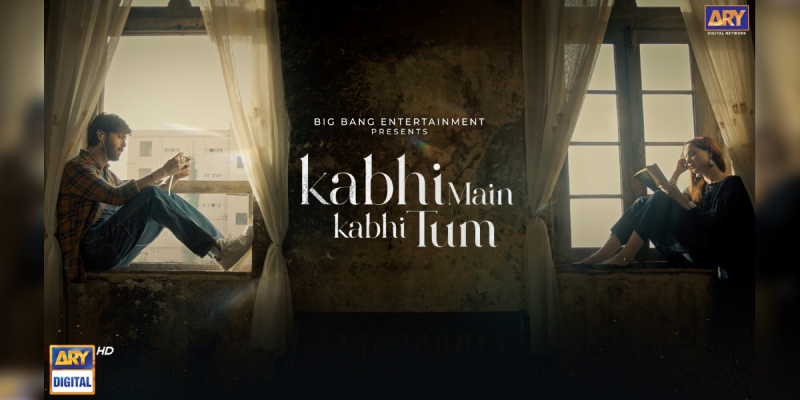

Kabhi Main Kabhi Tum, airing on ARY TV, has captured the hearts of Pakistani drama viewers with its perfect balance of humor and emotional depth. Starring Fahad Mustafa as Mustafa and Hania Aamir as Sharjeena, the drama masterfully weaves wit and sentiment to explore life’s complexities. But what truly sets Kabhi Main Kabhi Tum apart is how it uses humor not just for comic relief, but as a storytelling tool that enriches relationships and delivers poignant social commentary.
In this article, we will explore how humor strengthens the bond between the characters, with a focus on the central couples Mustafa and Sharjeena, and Adeel (Emmad Irfani) and Rubab (Naeema Butt). Through laughter and lightheartedness, the show reveals the emotional contrasts between the two pairs and how humor serves as a reflection of happiness and resilience.
Humor as a Coping Mechanism in Relationships
From the very beginning, Mustafa’s carefree personality sets the tone for much of the show’s humor. His playful banter with Sharjeena, who often takes a more serious approach, creates an engaging dynamic. One notable moment comes when Mustafa says, “Zindagi main na thora bht hassi mzaq bhi hona chahiye, har time itna serious ni rehna chahiye aadmi ko” (Life should have some laughter and fun; one shouldn’t be serious all the time). This line captures the essence of Mustafa’s character—a man who uses wit as a tool to cope with life’s challenges.
The humor between Mustafa and Sharjeena serves a deeper purpose beyond just lighthearted moments; it often diffuses the emotional tension in their relationship. Even when faced with financial hardships or family disputes, Mustafa’s humor provides a much-needed respite. It’s as if each joke is a reminder that life’s burdens are easier to carry when shared with laughter. Rather than trivializing their struggles, these humorous moments show how laughter can become a form of resilience, reinforcing the bond between Mustafa and Sharjeena.
Contrasting Couples: Humor vs. Seriousness
The contrast between Mustafa and Adeel further highlights the importance of humor in Kabhi Main Kabhi Tum . Adeel, who is driven by power and wealth, treats his relationship with Rubab as more of a business transaction than a genuine partnership. When he tells his parents, “Zindagi mujhe aage barhne ka moqa de rhi hai or aap chahte hain k main isse ganwa dun? Har kisi ko ni deti zindagi aisa moqa” (Life is giving me an opportunity to move forward, and you want me to lose it?), his ambition is clear. This stands in stark contrast to Mustafa, whose emotional connection with Sharjeena is rooted in laughter and mutual understanding.
Adeel’s relationship with Rubab, characterized by disdain and emotional coldness, also highlights the lack of humor in their lives. Adeel openly expresses his frustration, saying, “Nafrat hai mujhe iss aurat se, dam ghut’ta hai usk sath mera” (I hate this woman; I feel suffocated with her). This absence of warmth and humor reflects the emotional distance between Adeel and Rubab, highlighting how their relationship is driven by external factors like status and wealth, rather than emotional intimacy.
On the other hand, Mustafa and Sharjeena’s relationship thrives because of the humor they share. Mustafa’s jokes create moments of joy and connection, helping them navigate life’s struggles with ease. The show uses these contrasting relationships to highlight how humor can strengthen emotional bonds, while its absence can signify the breakdown of a partnership. It makes you wonder how much of our happiness in relationships depends on our ability to laugh together?
Humor as Social Commentary: Navigating Life’s Pressures
Beyond the personal relationships, Kabhi Main Kabhi Tum uses humor to address societal pressures, particularly those faced by the middle class in Pakistan. Mustafa’s lighthearted nature subtly critiques issues like financial instability, societal expectations, and family dynamics. While many characters face pressure to conform to societal norms, Mustafa’s ability to laugh at life’s challenges helps him maintain emotional balance. His humor acts as a tool to navigate tough situations without letting external pressures consume him.
Rather than being fixated on wealth like Adeel, Mustafa’s humor reflects his groundedness and emotional maturity. The show suggests that true contentment comes not from financial success but from finding joy in everyday moments. This clever use of humor makes the drama more relatable to audiences, serving as a subtle critique of societal values, where material success is often prioritized over emotional fulfillment.
Emotional Depth through Humor
What makes Kabhi Main Kabhi Tum stand out is its ability to move between humor and emotional depth seamlessly. The humor, especially between Mustafa and Sharjeena, doesn’t undercut the drama’s more serious moments. Instead, it adds a layer of emotional complexity. For instance, when the couple faces a major life decision, Mustafa’s light-hearted comment leads to a deeper conversation about their future. It’s in these moments that the show strikes a perfect balance, reminding us that life’s most meaningful conversations often happen between jokes.
Sharjeena’s transformation through humor is another key element. At one point, she tells Mustafa, “Life main bht arse baad khul k hassi hun, thank you zindagi main yeh new adventure krwane k liye” (After a long time, I am laughing openly in life; thank you for giving me this new adventure). This line encapsulates how humor has changed her perspective on life, reinforcing the emotional weight that humor carries in the show.
Conclusion: The Power of Humor in Relationships and Social Commentary
Kabhi Main Kabhi Tum transcends the typical narrative of romantic dramas by illustrating how humor serves as both a coping mechanism and a vital connector in human relationships. Mustafa’s ability to weave laughter into everyday challenges not only lightens the mood but also cultivates a deeper understanding between him and Sharjeena, allowing them to face life’s trials together with strength and unity. This contrast with Adeel and Rubab’s relationship, which lacks the warmth of humor, starkly emphasizes the emotional disconnection that can arise from seriousness and ambition alone. Ultimately, the drama suggests that while life is fraught with difficulties, it is the shared moments of laughter that can transform adversity into an opportunity for growth, reinforcing the notion that joy and resilience often go hand in hand.


All Rights Reserved © 2025 Femmerepublica. Powered by TechWrath